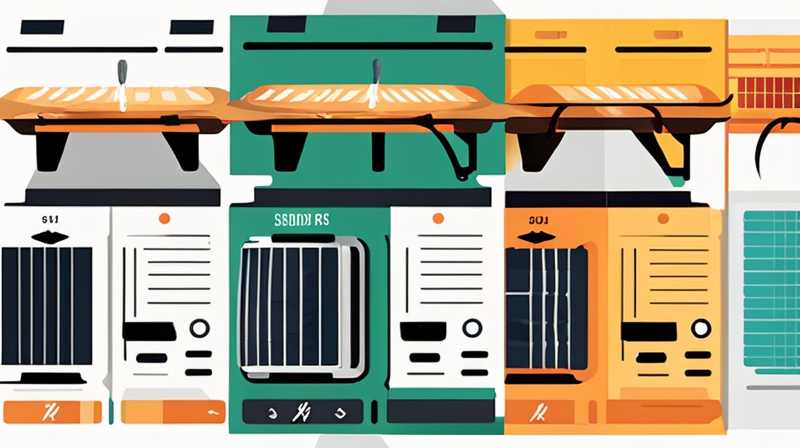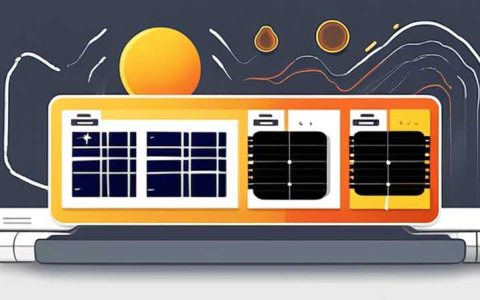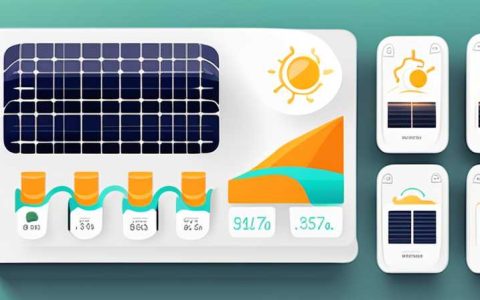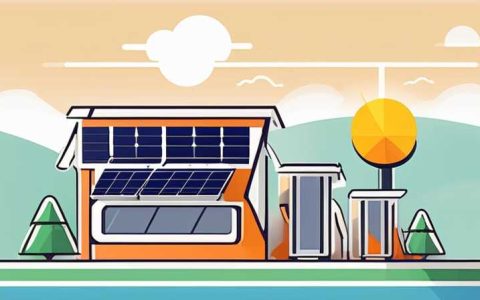
**1. Solar grills utilize renewable energy, cooking food efficiently, helping reduce carbon footprints, and operating without fuels or electricity while promoting outdoor culinary experiences. **2. They harness sunlight, transforming it into heat and enabling grilling, baking, and steaming food. **3. These devices are portable, making them perfect for outdoor activities like camping and picnics. **4. Utilizing a solar grill encourages a sustainable lifestyle by minimizing reliance on fossil fuels.
1. UNDERSTANDING SOLAR GRILLS
Solar grills represent a revolution in outdoor cooking, harnessing the power of the sun to generate heat for food preparation. Unlike traditional grills that depend on charcoal or propane, solar grills demonstrate environmentally-friendly cooking methods. At their essence, solar grills capture sunlight and convert it into heat, a process that allows for various cooking methods, including grilling, roasting, and baking. This innovation not only encourages a sustainable lifestyle but also promotes energy independence.
Increasingly popular in recent years, the appeal of solar grills is compounded by a global movement toward renewable energy and environmentally-conscious living. As the consequences of climate change become more pronounced, finding alternatives to conventional energy sources has become imperative. Solar grills exemplify this shift, allowing individuals to enjoy outdoor cooking experiences while minimizing their environmental impact. Their operation is simple yet effective; as the grill collects sunlight, it instantly transforms it into usable heat, facilitating an array of cooking methods.
2. OPERATION AND DESIGN OF SOLAR GRILLS
The fundamental design of solar grills focuses on capturing and converting sunlight into thermal energy. Various solar grill types exist; however, most operate on similar principles. Typically, these grills consist of a reflective surface that concentrates sunlight onto a cooking area. The most common materials used include aluminum and glass, known for their ability to absorb and transmit heat effectively.
One popular design seen in solar grills is the parabolic reflector. This structure mimics the shape of a dish, directing sunlight toward a single point where the cooking pot or pan is positioned. The efficiency of this design is highly effective, as it synthesizes solar rays, generating intense heat suitable for cooking. Alternatively, some models take the form of solar boxes that trap heat within insulated walls, which also serve to manage temperature regulation during the cooking process.
3. BENEFITS OF SOLAR GRILLING
The advantages of employing solar grills extend well beyond their environmental benefits. One of the most immediate benefits is the reduction of utility expenses linked to cooking. Solar energy is free and abundant, particularly in sunny regions, allowing individuals to cook without the constant financial burden associated with traditional fuel sources.
Furthermore, the use of solar grills encourages a healthier lifestyle. Since solar cooking generally emphasizes whole, unprocessed foods—often grilled or steamed—this method of meal preparation can lead to better dietary habits. Moreover, food cooked using solar grills often retains more nutrients than food cooked over an open flame or in oil, contributing to improved nutritional outcomes.
Portability is another attractive feature of solar grills. Ideal for outdoor enthusiasts, these grills are lightweight and easy to transport, making them perfect for camping trips, beach outings, or picnics at the park. Many models can be set up quickly, providing an efficient solution for cooking fresh meals in nature without needing access to electricity or fuel.
4. SUSTAINABILITY AND ENVIRONMENTAL IMPACT
Solar grilling embodies sustainability, particularly when juxtaposed with conventional cooking methods that contribute to pollution and greenhouse gas emissions. Each use of a solar grill negates the need for fossil fuels, substantially decreasing an individual’s carbon footprint. As awareness around climate change heightens, utilizing solar-powered cooking appliances becomes a pathway to contribute positively to environmental conservation.
Moreover, the materials used in solar grills reflect a minimalistic approach to manufacturing. Many solar grill producers prioritize sourcing materials that reduce environmental impact during production. The prioritization of sustainable materials ensures an overall reduction in waste while promoting recycling and upcycling practices, further enhancing the sustainability aspect of these devices.
Additionally, solar grills help to cultivate a sense of community among outdoor cooking enthusiasts. By participating in communal meals prepared using solar energy, individuals foster relationships centered around shared responsibility for the environment. This community engagement can emphasize the importance of collective action toward sustainability, highlighting how enjoyable cooking methods can contribute to significant environmental benefits.
5. LONG-TERM COST EFFECTIVENESS
Investing in a solar grill can provide long-term financial savings. While the initial purchase price may be higher than that of traditional grills, the absence of fuel costs results in substantial savings over time. Moreover, many solar grills are designed to be durable, enabling them to withstand various weather conditions. This durability prolongs their lifespan, rendering them more cost-effective for users in the long run.
Additionally, solar grilling can lead to reduced costs associated with energy bills over time. Even those who own electric grills or ovens can benefit from cutting back on their reliance on these appliances. By alternately using solar grills, individuals can ease financial pressure during summer months when sunlight is most abundant and reduce electricity consumption.
Extended usage of solar grills can lead to a reduction in the overall power grid’s demand—prompting energy companies to adapt and embrace emerging technology focused on sustainability. This shift gradually leads to the integration of solar energy into broader energy policies which can result in lower costs of electricity for consumers in the long run.
6. USAGE AND RECIPES
Using a solar grill requires a thoughtful approach to meal planning and preparation. Unlike traditional grilling, solar cooking often necessitates preheating before placing food inside. Users should consider preparing their ingredients ahead of time, ensuring a seamless cooking experience that capitalizes on available sunlight.
Certain recipes align particularly well with solar grilling methods. Dishes such as roasted vegetables, simmered stews, and baked goods can thrive when subjected to the gentle heat of solar cooking. Using fresher ingredients typically local to one’s area also increases the sustainability of meals while promoting a farm-to-table ethos.
Moreover, experimenting with recipes encourages users to discover the full potential of solar grilling. As individuals engage in creative meal preparation, they come to appreciate the richness of flavors cultivated through sunshine. Some traditional recipes can be adapted for solar cooking, offering a newfound family favorite that showcases the unique advantages of this grilling method.
FREQUENTLY ASKED QUESTIONS
HOW DOES A SOLAR GRILL WORK?
Solar grills function by harnessing solar energy, converting it into usable heat for cooking. The fundamental components of a solar grill include reflective surfaces, which capture sunlight and direct it to a cooking element. The heat generated allows users to grill, roast, or bake meals without traditional fuels or electricity. Efficient solar grill designs utilize materials capable of maximizing sunlight absorption, often taking the form of parabolic reflectors or insulated cookers. Through proper placement and patience, these grills can effectively maintain temperatures required for cooking, making it an innovative method of food preparation.
IS COOKING WITH A SOLAR GRILL SAFE?
Cooking with a solar grill is generally safe, provided users adhere to proper safety measures. Since solar grills operate solely on sunlight, there are no emissions associated with using conventional fuels, contributing to a safer cooking environment. However, caution should be exercised to prevent burns when handling hot surfaces or tools. Users should also be aware of food safety principles, ensuring that meat and perishable items are cooked thoroughly. By following these guidelines and ensuring proper setup, individuals can enjoy risk-free outdoor cooking experiences while promoting sustainable energy usage.
CAN SOLAR GRILLS BE USED IN ALL WEATHER CONDITIONS?
While solar grills primarily rely on sunlight, they can be effective under various weather conditions. However, their efficiency significantly decreases on cloudy or rainy days. It is essential for users to plan ahead and time their cooking around sunny days for maximum effectiveness. Some models designed with better insulation can maintain heat during overcast conditions to some extent, but results may not be as satisfactory. It’s advisable to delay cooking until suitable weather is present to ensure optimal cooking experiences and enjoy the full benefits of solar grilling.
The utilization of solar grills signifies a pivotal shift towards sustainable outdoor cooking. By embracing renewable energy practices, individuals can relish the joys of grilling while simultaneously reducing their environmental impact. Solar grills empower users to connect with nature, experience culinary traditions, and promote sustainability through everyday actions. Not only do these devices provide energy-efficient meal preparation options, but they also inspire a movement towards greater awareness regarding environmental conservation and changing culinary habits. The ability to relish grilled meals, roast vegetables, or bake treats in an eco-friendly manner cultivates a more sustainable lifestyle for outdoor enthusiasts and everyday users. Moreover, this evolving culture urges individuals to showcase creativity in their cooking, encouraging experimentation with renewable cooking methods. In a world grappling with the repercussions of climate change, solar grills extend an opportunity to harness the sun’s power, enhancing our relationships with food and fostering a brighter, cleaner future for generations ahead.
Original article by NenPower, If reposted, please credit the source: https://nenpower.com/blog/what-can-a-solar-grill-do/











